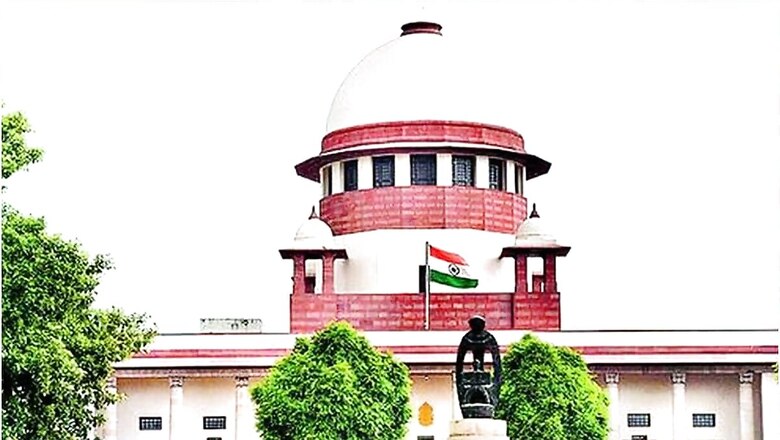
views
The Supreme Court has explained that a complaint made in good faith to a lawful authority, even if it contains certain allegations against a person, cannot be construed as defamation.
A bench of Justices J B Pardiwala and Manoj Misra set aside the Bombay High Court’s order rejecting a writ petition against summons issued against appellant Kishore Balkrishna Nand in a defamation case.
The High Court had declined to quash the order of issue of process by the Magistrate.
The appellant lodged a complaint in writing and addressed it to the Sub-Divisional Magistrate, stating that the original complainant had put up a shop by encroaching upon a land. In the complaint, the appellant is said to have further stated that such shop put up by the complainant was creating nuisance, as many anti-social elements and road romeos had started visiting the said shop and were creating all sorts of problems.
Acting upon the complaint, the SDM issued notice to the complainant. While the proceedings before the SDM were pending, the complainant thought fit to lodge a private complaint in the Court of the Judicial Magistrate, Worora, Chandrapur, State of Maharashtra for the offence of defamation.
The Magistrate took cognizance on the said complaint and issued process. The cognizance for the offence of defamation was taken by the Magistrate on the basis of the averments said to have been made by the appellant in his written complaint addressed to the SDM.
The appellant approached the magistrate for recall of the order which was declined. Similarly, a revision petition as well as writ petition was also rejected by the sessions and the High Court, respectively.
In his plea before the top court, the appellant contended that none of the ingredients for the offence of defamation were made out here. He submitted that even otherwise, since the alleged defamatory words or statements are said to have been made in a complaint in writing, addressed to a public authority like SDM, and not made public, it would not attract the rigours of Section 499 of the IPC.
After going through the penal provisions, the bench said, “Exception 8 to Section 499 clearly indicates that it is not a defamation to prefer in good faith an accusation against any person to any of those who have lawful authority over that person with regard to the subject-matter of accusation.”
“Even otherwise, by perusing the allegations made in the complaint, we are satisfied that no case for defamation has been made out,” the bench said.
The court allowed the appeal, quashed the summons and terminated the criminal proceedings against the appellant.




















Comments
0 comment